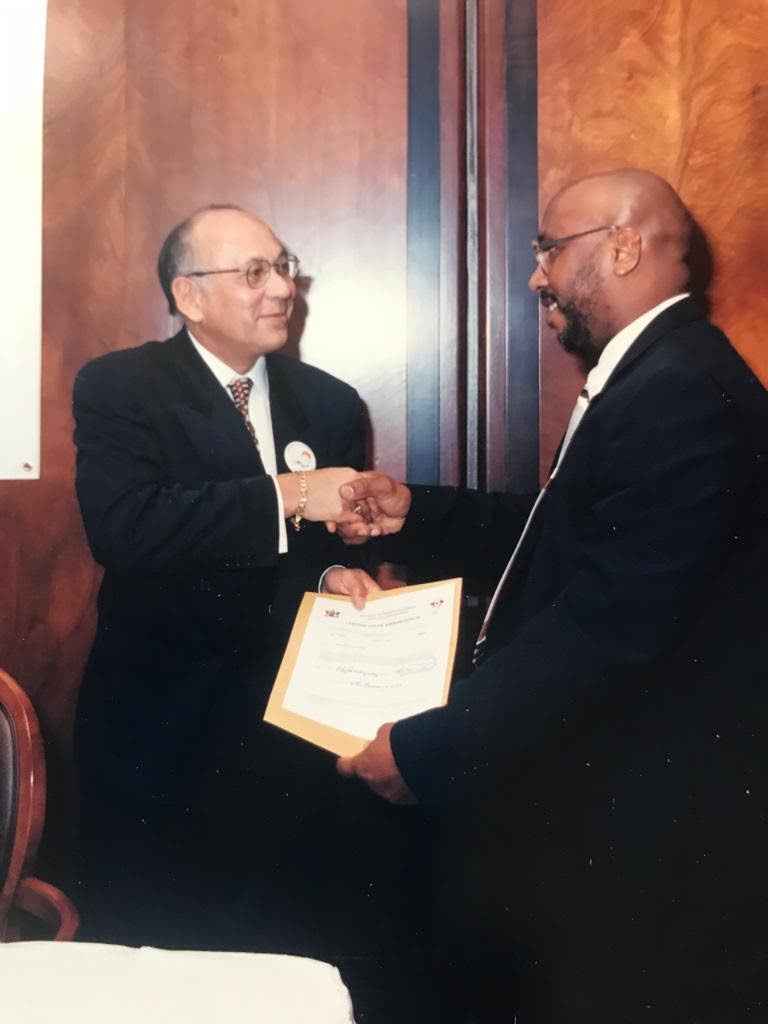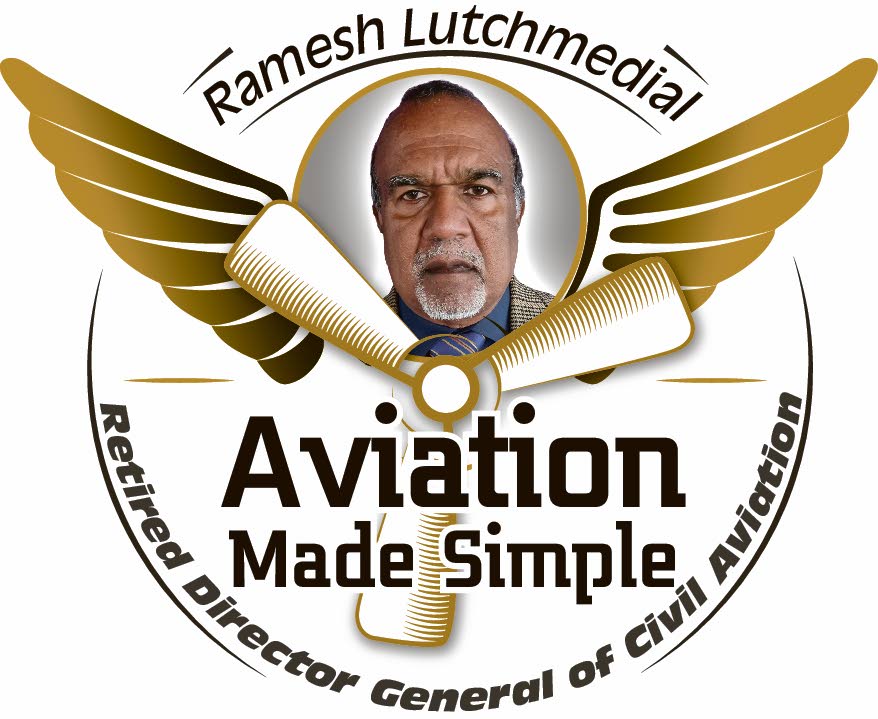Changing of guards at Aviation Authority

Congratulations are well in order for Cary Price, who was appointed as the next director general of civil aviation (DGCA) of the Trinidad and Tobago Civil Aviation Authority (TTCAA).
On November 22, TTCAA chairman Thomas Lawrence informed all staff by an internal memo that pursuant to a Cabinet minute, Price will be appointed DGCA with effect from January 1, 2024.
Price will succeed Francis Regis, who was appointed in April 2017.
Like his predecessor, Regis has an illustrious aviation career that began in 1979, when he joined the BWIA Engineering and Maintenance Department after spending three years at the John S Donaldson Technical Institute, graduating with a diploma in mechanical engineering.
After obtaining his aircraft maintenance engineer’s licence, Regis moved into the management ranks at BWIA, becoming the head of quality.
In this position, he was responsible for ensuring the maintenance, repair and overhaul of all BWIA aircraft, engines and components are done in accordance with the approved aircraft maintenance manuals.
In 1996, the government decided to localise the provision of aviation safety regulatory services being performed at that time by personnel from the UK Civil Aviation Authority (CAA) under contract.
Regis and other technical BWIA quality personnel resigned from BWIA and took up appointments in the Civil Aviation Division of the Ministry of Works and Transport as airworthiness inspectors. They were joined by two retired BWIA L1011-500 training captains as flight operations inspectors.
In 2000, Regis single-handedly certificated the first Boeing 737-800 aircraft delivered to BWIA, and received a Boeing award for that achievement.
The government did not renew the contract with the UK CAA, and for the first time in TT’s aviation history, all aviation safety regulatory functions were being performed by locals.
In 2001, Parliament enacted the Civil Aviation Act, which established the TTCAA. Regis and the inspectorate team were transferred to the TTCAA.
Regis was appointed executive manager of safety regulation with responsibility for all regulatory matters required by the Civil Aviation Act.
The act prescribes the TTCAA’s primary functions, inter alia, as regulating all civil aviation activities in TT and providing air navigation services in the Piarco Flight Information Region (FIR) which is an area of 750,000 square miles of airspace.
In 2005, the TTCAA imposed a regime of user charges for air navigation services provided to aircraft operating in the Piarco FIR.
This made the TTCAA a cash-rich organisation, enabling the full funding of all capital projects, including constructing the ultra-modern civil aviation complex and installing state-of-the-art air navigation equipment.
TTCAA employees enjoy terms and conditions of employment that are better than comparable positions in the public service.
Regis and his team provided yeoman support to the DGCA in TT’s quest to be upgraded to FAA IASA Category 1.
TT was downgraded to Category 2 because the UK CAA system of safety oversight did not fully comply with the eight critical elements of an ICAO safety oversight system.
Regis’s team drafted over 1,800 pages of ICAO-compliant aviation regulations for approval by Parliament. In 2005, the TTCAA underwent a successful FAA IASA audit and TT was upgraded to Category 1.
In 2012, the TTCAA underwent another successful FAA IASA audit that was triggered by CAL’s fleet expansion, resumption of operations to London and the Boeing 737-800 accident in Guyana in July 2012.
On January 12, 2010, the DCGA was in Haiti to attend a board meeting of CASSOS when a powerful earthquake struck in which over 360,000 people died, including Gregory Mc Alpin, who was a member of Regis’s quality team at BWIA. Regis put together a rescue team to go to Haiti.
However, just before the team was about to depart on a chartered flight, the DGCA was able to contact TT using a US military satellite phone.
In April 2017, when the first DGCA retired, Regis was appointed the next DGCA.
Apart from this AMELs, Regis holds a certificate in aviation safety and security from the University of Southern California and an MBA and an LLM from prestigious UK universities.
Regis’s regulatory career is underpinned by his impeccable integrity, loyalty, humaneness and the uncompromising discharge of his regulatory functions.
Regis must be commended for his sterling contribution to the development of local, regional and international civil aviation.

Price began his aviation career approximately 30 years ago as an air traffic controller (ATC) obtaining his full ATC ratings in aerodrome, approach and area.
He later joined the TTCAA’s Civil Aviation Training Centre (CATC) as an instructor. He led the efforts for the CATC to become a certified ICAO Trainair Plus organisation.
Apart from his ATC licences, Price holds an MSc in aviation management from the UWI. He is the manager at CATC at present.
In August 2020, when the position of DGCA was advertised, Price emerged as the top candidate.
The position of DGCA as the CEO of the TTCAA is very prestigious and carries tremendous responsibilities. Whenever it next becomes vacant, there will be intense competition for appointment as the DGCA by eminently qualified members of the TTCAA and the public service who hold tertiary-level academic qualifications in aviation management and experience gained by attending international aviation conferences and seminars.
A public servant who has 33 and 1/3d years’ service can opt for early retirement and enjoy a full public service pension. That person, if appointed DGCA and over 55 years of age, can join the pension plan under rules three and four of the pension plan and buy back service into the plan for enhanced pension benefits. The precedent was already set for this arrangement.
Price is certainly not a "nightwatchman," by any means whatsoever.
Instead, like his predecessors, Price possesses the requisite strategic competencies to effectively lead the TTCAA to maintain its status as a world-class centre of aviation excellence.


Comments
"Changing of guards at Aviation Authority"